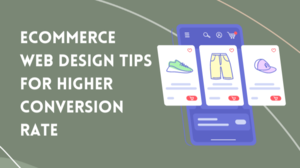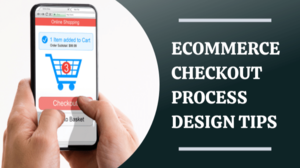Blogging for Ecommerce: 10 Reasons Ecommerce Sites Need a Blog
There seems to be no shortage of bloggers online, and a lot of good content out there on just about every topic imaginable. It’s not difficult to see why this is the case when you consider that creating a blog is easy and free.
If you’re running an online store, you may not have even thought about starting up a blog. You’d be forgiven for believing that writing blog articles have little to do with selling products online.
However, as this article will show, there are a lot of good reasons to set up a blog on your ecommerce website; in fact, it is just about a must in many industries online and is becoming more important over time.
Let’s find out a few of the reasons why this is the case:
1. Helps with SEO
With the growing emphasis on content in terms of driving SEO juice, the importance of keeping an active blog to get your keywords ranked in Google, and other search engines are more important than ever.
If you can figure out which keywords you’re most likely to rank for and those that are most relevant to your website, you can focus some of your blog articles on these topics, and this will affect your results in the long run.
If Google sees that you’re talking about certain products on your blog, sports equipment, for instance, its association between your website and these kinds of search terms will be strengthened. Further, weekly or fortnightly blogging signals to Google that your website is being updated, which ensures it stays on Google’s radar, so to speak.
The most important thing when it comes to blogging for SEO purposes is quite simple to write unique, engaging content related to your products and a general line of business.
If you can attract clicks and interest from people online, Google is going to notice, and you’ll see the benefits of this. And the best way to get people interested is to make sure your content is excellent. It can even be worth hiring a writer to come up with interesting posts regularly.
2. Increases traffic
In addition to improving your keyword ranks, posting blog articles is naturally going to get you more traffic as your posts start showing up on social media and in search engines too. A good, relevant article can spread like wildfire on Facebook, Reddit or Twitter, so always make sure you share your posts.
If you are blogging on relevant topics, you’ll find that the blog picks up some extra clicks from search engines as the pages themselves start to get ranked. Someone searching for information – which is relevant to your industry or brand – may stumble upon your blog, navigate through some of the pages on your website and see something they like.
That’s why it’s really helpful to cater your posts to what people may be looking for. A blog article with the headline Five pieces of sports equipment that make a good gift this Christmas for instance will tend to pick up more clicks on Google because there are likely to be searched for this kind of information.
3. Builds your brand

One of the great things about blogging is that it gives you a platform to tell a story and give your brand something of an identity. When it comes down to it, this is one of the biggest benefits of social media as well; blogging helps you take this a step further and give readers a reason to connect and relate with your company.
Rather than always looking to promote your products and constantly trying to sell, social media and blogging are utilised best when it’s real, so to speak.
Depending on your brand, you may choose to speak about your own life, how the company come to be and where it’s headed. It’s all about telling a story! This is what people want to hear about, and creating a brand identity is one of the most effective ways to establish ongoing relationships with your customers.
4. Demonstrates your expertise
Blogging gives you a means of conveying your own business’s knowledge and expertise about the industry and the products you are selling. This creates a sense of trust and comfort in the minds of potential buyers, which makes it more likely that they will buy from you.
That is why it’s always important to give advice and show your knowledge in your posts; set yourself up as the expert in the field that knows as much about the topic as anyone. This can really have an impact on the way readers perceive your brand.
The addition of an interactive, visual and highly active blog also affects visitors in the way an especially well-designed website does; it can help your business seem more legitimate, genuine and competent.
5. Generate new backlinks

Blogs provide you with the opportunity to build natural internal and external links from and within your site.
Simply put, backlinks are links created from external domains that locate pages on your domain. It accounts for generating positive results on search engines. Pages with the majority number of backlinks tend to have high organic search engine rankings.
As bloggers and websites will not link to your product pages without some solid causes, having a blog enables you to tap into the community and build relationships with other website owners and get them to begin linking to your content.
And here’s why you need to focus on making content more worthy of links when publishing blogs on e-commerce. It can be any informational content full of the latest news or updated data or any educational content that will bring value to your audience.
And building quality and partnerships with your blog will improve your ranking on search engines while promoting your products at the same time.
6. Generate leads and boosts positive conversion rate
Nor do blogs drive more traffic to your ecommerce store; they will convert that traffic into your leads and raise your conversions too!
Each new piece of content you will add to your site will work as the hook that will persuade your prospects to take action. And one way to do that may be by placing a call-to-action to each blog post that leads people to decisions.
Those call-to-actions often will lead to things like a free trial, webinar, free eBooks or any content asset where visitors need to submit information. And it will bring long-term results because blogging is a long-term strategy that will offer benefits for years to come.
So, the more satisfied the readers will be with your blog posts, the more they are likely to convert.
7. Enhance customer engagement

Blogging is another way to interact with customers. When you offer something that your audiences will enjoy reading, something that is related to your brand and something that adds value to the readers, it will eventually enhance your audience engagement.
Even to drive continual improvement of your customer engagement metrics, in blogging, you have the scope to post visuals (photos or videos) or add inspirational stories relevant to your industry to engage customers.
In a study, it is found that each month, around 409 million people view more than 20 billion blog pages.
Because customers consider a blog as a reliable source of information as it provides prospects and customers with solutions they are looking for. And they are more likely to return to your blog when they find the information useful. This help in building a relationship with the target customers.
8. A free marketing platform
When it comes to promoting your business online, blogging works as that free marketing tool you should be using.
No matter whether you are opt-in email marketing or have an area on your website to share your announcements, your new blog will do the work to update your customers with the latest news and updates.
Consistently posting relevant blogs will help you in boosting your social media marketing efforts as well by expanding your reach on social media through sharing.
It can be a steady flow, but in the long run, it will help you in generating more and more visitors for free who can turn into paying customers.
9. People read blogs before making any purchasing decision

Be it to know how to do something new or to learn more about a particular product or brand, a huge number of leads are driven to read blogs.
For example, when a customer is planning to purchase a washing machine, they will look for tutorial videos or step-to-step processes and any instructions on how to use them, so naturally, they will rely on posts that include the needed guides. And based on descriptions they read in a blog, they make the buying decision.
Even if it is not about information, people read blogs to educate themselves with trend topics that they are less familiar with to make their purchase decision; it can be about trendy clothes, treats or gift ideas.
So blogs do have an impact on sales, and this is another reason why you should run blogging for an ecommerce site.
10. Creates an online community
By publishing a blog on an ecommerce site, you can allow customers to comment on your posts which can make them feel like a part of a larger online community. Because when you let them provide insights on how you can improve your product, they can voice their opinion by connecting directly.
So, to get more insights from your leads, create blogs adding how-to articles or interactive quizzes, and this will help you to build an online community organically for your business.
Having an online community will also work as social proof to attract more leads. When you have a community around your blog, they will recommend you to their own communities. It will lead to more social shares, which in turn will generate more traffic to your site.
That’s all great, but what do I blog about?
To put it simply, there shouldn’t be a limit on what you’re blogging about, provided it’s congruent with your brand. Some of the most successful ecommerce blogs draw on a wide range of topics, putting forward viewpoints regarding topics that may have a limited connection with the products the website is selling.
We wouldn’t discourage doing so, as long as it fits the culture and identity of your brand, which is something you have to build up over time.
Otherwise, don’t hesitate to blog about what is happening in your industry, new product releases, events, predictions for the future, how-to articles related to your field and general advice.
The key point is to try to be as objective as possible and don’t always be focused on your own products – recommend the products of other providers if you think they are good!
As this article has discussed, blogging can be very helpful as far as your bottom line goes, helping you to build traffic and convert.
If you’re after more advice on blogging or you’re interested in setting up your own onsite blog, feel free to give the WebCommander team a call today we’d be happy to help you out and answer any of your questions.








